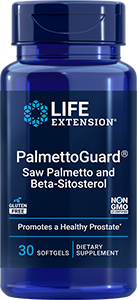Higher vitamin D levels associated with improved breast and colorectal cancer survival
Tuesday, March 18, 2014. An article published online on February 27, 2014 in the European Journal of Cancer reports the results of two meta-analyses conducted by researchers at the German Cancer Research Center in Heidelberg which affirm a protective effect for higher levels of vitamin D against the risk of dying from breast cancer as well as colorectal cancer.
The researchers selected five studies that involved 4,413 breast cancer patients and five that included 2,330 colorectal cancer patients. Among the breast cancer patients, 622 deaths from any cause occurred during 4.7 to 24 years of follow-up, and for colorectal cancer patients there were 1,214 deaths over a similar period.
Analysis of the selected studies uncovered a 38% average lower risk of dying from any cause and a 42% lower risk of dying from breast cancer when the highest versus lowest categories of serum 25-hydroxyvitamin D levels were compared. For colorectal cancer, the risk averaged 29% lower for all-cause mortality and 35% lower for disease-specific death among the highest groups. Exclusion of a study limited to stage IV colorectal cancer patients (who have less than a 10% chance of five year survival) further reduced the risk of mortality for those whose vitamin D levels were highest.
"In the United States, despite food fortification, vitamin D deficiency was found to be widespread among both colorectal cancer (65%) and breast cancer (39%) patients," authors Haifa Maalmi and colleagues write. "The rather consistent results found in our meta-analyses suggest vitamin D supplementation might bear a potential to improve prognosis among colorectal and breast cancer patients, a suggestion that should be followed up and tested in randomised controlled trials." |
 |
What's Hot
An article published online on January 25, 2012 in Cancer Epidemiology, Biomarkers and Prevention reports an association between higher prediagnostic levels of vitamin D and increased survival among patients with colorectal cancer.
The study evaluated the association between serum vitamin D levels and mortality among 1,202 men and women enrolled in the European Prospective Investigation into Cancer and Nutrition (EPIC) cohort, which recruited over 520,000 participants from 1992 to 1998. Subjects in the current study were diagnosed with colorectal cancer between enrollment and June 2003. Over a mean follow-up period of 73 months, 444 deaths due to colorectal cancer and 97 deaths from other causes occurred.
Men and women whose serum vitamin D levels were among the top 20 percent of participants had a 31 percent lower risk of dying from colorectal cancer and a 33 percent lower risk of mortality from any cause compared to those whose levels were among the lowest 20 percent. Having a high vitamin D level was protective against cancers of both the colon and the rectum. When subjects were analyzed according to calcium intake, a significant protective effect of vitamin D was observed only among those with high dietary calcium.
"If verified in other studies, calcium supplementation in combination with vitamin D may be potentially useful for improved survival in colorectal cancer patients," the authors write. "This large and comprehensive study, based on the EPIC cohort has shown that higher blood vitamin D levels before colorectal cancer diagnosis are associated with reduction in colorectal cancer-specific and overall mortality. Further prognostic studies among cancer patients are needed to determine whether 25(OH)D levels at diagnosis and post-diagnosis correlate with those measured prior to diagnosis, and influence all-cause and disease-specific survival among colorectal cancer patients." |

|
Latest Products |
 |
|
In response to mounting evidence that age-associated fat accumulation results from the loss of metabolic capacity to utilize ingested calories, this natural blueberry-flavored powdered drink mix has been formulated with these five key ingredients . . . each individually shown to promote weight loss:
- LuraLean® (propolmannan) – a proprietary fiber that swells in the stomach after ingestion with water to help reduce calorie consumption.
- White Kidney Bean (Phaseolus vulgaris) – inhibits amylase, the digestive enzyme that breaks down carbohydrates to be absorbed into the bloodstream as glucose.
-
Irvingia gabonensis (African mango extract) – has amylase digestive enzyme inhibiting properties.
-
Green Tea Phytosome boosts resting metabolic rate and helps impede the lipase enzyme used to facilitate dietary fat breakdown.
-
CoffeeGenic® Green Coffee Extract delivers high potency chlorogenic acid to inhibit excess activity of the enzyme that triggers glucose formation from non-carbs (fat, protein) and glycogen release from the liver.
This supplement should be taken in conjunction with a healthy diet and regular exercise program. Results may vary.
LuraLean® is a registered trademark of AHD International LLC. |
| |
 |
|
The saw palmetto berry (Serenoa repens) is rich in bioactive, high-molecular weight compounds including beta-sitosterol. It has been shown to interfere with DHT activity in the prostate, inhibit alpha-adrenergic receptor activity (to support normal urinary flow), and help regulate inflammatory actions in the prostate gland.
This saw palmetto extract has been standardized to contain 85% free fatty acids and sterols. It also contains beta-sitosterol, boron, and rosemary leaf extract. |
|
 |
Related Articles
|
|

